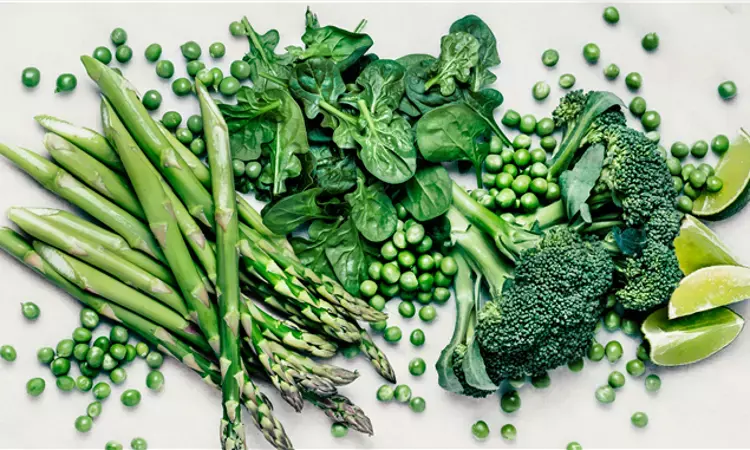- Home
- Medical news & Guidelines
- Anesthesiology
- Cardiology and CTVS
- Critical Care
- Dentistry
- Dermatology
- Diabetes and Endocrinology
- ENT
- Gastroenterology
- Medicine
- Nephrology
- Neurology
- Obstretics-Gynaecology
- Oncology
- Ophthalmology
- Orthopaedics
- Pediatrics-Neonatology
- Psychiatry
- Pulmonology
- Radiology
- Surgery
- Urology
- Laboratory Medicine
- Diet
- Nursing
- Paramedical
- Physiotherapy
- Health news
- Fact Check
- Bone Health Fact Check
- Brain Health Fact Check
- Cancer Related Fact Check
- Child Care Fact Check
- Dental and oral health fact check
- Diabetes and metabolic health fact check
- Diet and Nutrition Fact Check
- Eye and ENT Care Fact Check
- Fitness fact check
- Gut health fact check
- Heart health fact check
- Kidney health fact check
- Medical education fact check
- Men's health fact check
- Respiratory fact check
- Skin and hair care fact check
- Vaccine and Immunization fact check
- Women's health fact check
- AYUSH
- State News
- Andaman and Nicobar Islands
- Andhra Pradesh
- Arunachal Pradesh
- Assam
- Bihar
- Chandigarh
- Chattisgarh
- Dadra and Nagar Haveli
- Daman and Diu
- Delhi
- Goa
- Gujarat
- Haryana
- Himachal Pradesh
- Jammu & Kashmir
- Jharkhand
- Karnataka
- Kerala
- Ladakh
- Lakshadweep
- Madhya Pradesh
- Maharashtra
- Manipur
- Meghalaya
- Mizoram
- Nagaland
- Odisha
- Puducherry
- Punjab
- Rajasthan
- Sikkim
- Tamil Nadu
- Telangana
- Tripura
- Uttar Pradesh
- Uttrakhand
- West Bengal
- Medical Education
- Industry
One cup of leafy green vegetables a day lowers risk of heart disease

New Edith Cowan University (ECU) research has found that by eating just one cup of nitrate-rich vegetables each day people can significantly reduce their risk of heart disease.
The study investigated whether people who regularly ate higher quantities of nitrate-rich vegetables, such as leafy greens and beetroot, had lower blood pressure, and it also examined whether these same people were less likely to be diagnosed with heart disease many years later.
Cardiovascular diseases are the number one cause of death globally, taking around 17.9 million lives each year.
Researchers examined data from over 50,000 people residing in Denmark taking part in the Danish Diet, Cancer, and Health Study over a 23-year period. They found that people who consumed the most nitrate-rich vegetables had about a 2.5 mmHg lower systolic blood pressure and between 12 to 26 percent lower risk of heart disease.
Lead researcher Dr Catherine Bondonno from ECU's Institute for Nutrition Research said identifying diets to prevent heart disease was a priority.
"Our results have shown that by simply eating one cup of raw (or half a cup of cooked) nitrate-rich vegetables each day, people may be able to significantly reduce their risk of cardiovascular disease," Dr Bondonno said.
"The greatest reduction in risk was for peripheral artery disease (26 percent), a type of heart disease characterised by the narrowing of blood vessels of the legs, however we also found people had a lower risk of heart attacks, strokes and heart failure."
Forget the supplements
The study found that the optimum amount of nitrate-rich vegetables was one cup a day and eating more than that didn't seem to give any additional benefits.
"People don't need to be taking supplements to boost their nitrate levels because the study showed that one cup of leafy green vegetables each day is enough to reap the benefits for heart disease," Dr Bondonno said.
"We did not see further benefits in people who ate higher levels of nitrate rich vegetables."
Smoothies are ok
Dr Bondonno said hacks such as including a cup of spinach in a banana or berry smoothie might be an easy way to top up our daily leafy greens.
"Blending leafy greens is fine, but don't juice them. Juicing vegetables removes the pulp and fibre," Dr Bondonno said.
The paper "Vegetable nitrate intake, blood pressure and incident cardiovascular disease: Danish Diet, Cancer, and Health Study" is published in the European Journal of Epidemiology. It is a collaboration between Edith Cowan University, the Danish Cancer Society and The University of Western Australia.
The research adds to growing evidence linking vegetables generally and leafy greens specifically with improved cardiovascular health and muscle strength. This evidence includes two recent ECU studies exploring cruciferous vegetables and blood vessel health and green leafy vegetables and muscle strength.
Hina Zahid Joined Medical Dialogue in 2017 with a passion to work as a Reporter. She coordinates with various national and international journals and association and covers all the stories related to Medical guidelines, Medical Journals, rare medical surgeries as well as all the updates in the medical field. Email: editorial@medicaldialogues.in. Contact no. 011-43720751
Dr Kamal Kant Kohli-MBBS, DTCD- a chest specialist with more than 30 years of practice and a flair for writing clinical articles, Dr Kamal Kant Kohli joined Medical Dialogues as a Chief Editor of Medical News. Besides writing articles, as an editor, he proofreads and verifies all the medical content published on Medical Dialogues including those coming from journals, studies,medical conferences,guidelines etc. Email: drkohli@medicaldialogues.in. Contact no. 011-43720751


